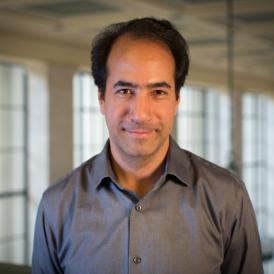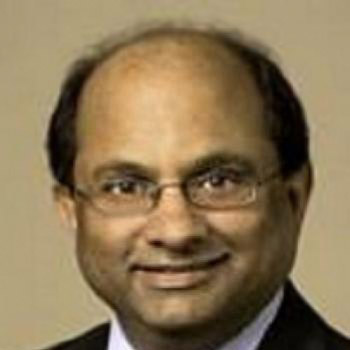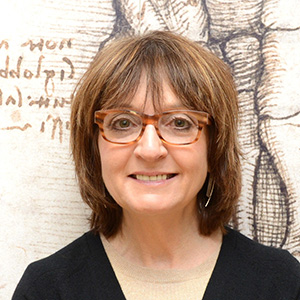Program
Big Data Neurosciences Workshop 2018
http://www.neurosciencenetwork.org/ACNN_Workshop_2018.htmlOrganized by the Advanced Computational Neuroscience Network and supported by the National Science Foundation
Thursday, September 6th
| 8:00 AM - 8:30 AM | Thwing Center | Registration and Breakfast |
| 8:30 AM - 8:45 AM | Thwing Center | Welcome introductory remarks |
| 8:45 AM - 9:00 AM | Thwing Center | Invited Speaker Mark Chance (Case Western Reserve University) |
| 09:00 AM - 09:35 AM | Thwing Center | Keynote Helen Mayberg (Icahn School of Medicine at Mount Sinai) |
| 9:35 AM - 10:00 AM | Thwing Center | Invited Speaker Lin Mei (Case Western Reserve University) |
| 10:00 AM - 10:30 AM | Thwing Center | Invited Speaker Ivo Dinov (University of Michigan) |
| 10:30 AM - 10:45 AM | Coffee break | |
| 10:45 AM - 11:10 AM | Thwing Center | Invited Speaker Franco Pestilli (Indiana University) |
| 11:10 AM - 11:35 AM | Thwing Center | Invited Speaker Jonathan Haines (Case Western Reserve University) |
| 11:35 AM - 12:10 PM | Thwing Center | Keynote Vinod Menon (Stanford University) |
| 12:10 PM - 1:20 PM | Thwing Center | Lunch break and networking session |
| 1:20 PM - 1:35 PM | Thwing Center | Invited Speaker: Raghu Machiraju (Ohio State University) |
| 1:35 PM – 2:35 PM | Thwing Center | Panel Discussion: Challenges and Opportunities in Translational Neuroscience |
| Speakers: Kevin Ward (U. Michigan Ann Arbor); Samden Lhatoo (University Hospitals, Cleveland Medical Center); Pallavi Tiwari (Case Western Reserve University); Raghu Machiraju (Ohio State University) | ||
| 2:35 PM - 3:45 PM | Thwing Center | Coffee break and Poster Session |
| 3:45 PM – 5:00 PM | Thwing Center | Lightning Talks |
| 5:00 PM - 5:25 PM | Thwing Center | Invited Speaker Lei Wang (Northwestern University) |
| 5:25 PM - 5:50 PM | Thwing Center | Invited Speaker Satya Sahoo (Case Western Reserve University) |
| 5:50 PM - 6:00 PM | Thwing Center | Concluding remarks and agenda for Day 2 of workshop |
Friday, September 7th
| 8:00 AM - 8:30 AM | Thwing Center | Light breakfast |
| 8:30 AM - 8:35 AM | Thwing Center | Introduction – Satya Sahoo |
| 8:35 AM - 9:10 AM | Thwing Center | Keynote Alan P. Jasanoff (McGovern Institute for Brain Research at Massachusetts Institute of Technology) |
| 9:10 AM - 9:35 AM | Thwing Center | Invited Speaker Dhabaleswar Panda (Ohio State University) |
| 9:35 AM - 10:00 AM | Thwing Center | Invited Speaker Melissa Cragin (Midwest Big Data Hub) |
| 10:00 AM - 10:15 AM | Thwing Center | Coffee break |
| 10:15 AM - 10:40 AM | Thwing Center | Invited Speaker Zhong-Lin Lu (Ohio State University) |
| 10:40 AM - 11:05 AM | Thwing Center | Invited Speaker Richard Gonzales (University of Michigan). |
| 11:05 AM - 11:40 AM | Thwing Center | Keynote Nitin Tandon (University of Texas Health Science Center at Houston) |
| 11:40 AM - 12:00 PM | Thwing Center | Concluding remarks and BDN 2019! |
| 12:00 PM - 12:30 PM | Thwing Center | Program Concludes: Boxed lunches to go |
Keynote Speakers

Alan P. Jasanoff, Ph.D.
Brain activity mapping with molecular fMRI
Explanatory models of brain function will require generating and analyzing molecular and cellular aspects of neurophysiology on a “big data scale." Unfortunately, experimental tools for achieving this in all but the smallest brains are not yet available. To address this problem, our laboratory is developing imaging probes for monitoring neural activity by molecular-level functional magnetic resonance imaging (“molecular fMRI”). Although this technology is still nascent, it combines the specificity of invasive cellular-level measurements for the first time with potentially comprehensive spatial coverage. Here we describe new molecular fMRI strategies for performing analogs of high resolution optical calcium imaging, as well as for addressing additional targets like neurotransmitters. We also describe imaging concepts that could eventually be suitable for molecular fMRI of neural targets in human subjects.
Alan Jasanoff is a Professor of Biological Engineering, with joint appointments in the departments of Brain and Cognitive Sciences and of Nuclear Science and Engineering. He currently serves as Director of the MIT Center for Neurobiological Engineering. Prior to joining the MIT faculty, he was a Whitehead Fellow at the Whitehead Institute for Biomedical Research at MIT. He was named a Raymond and Beverly Sackler Foundation Scholar in 2004 and received the McKnight Technological Innovations in Neuroscience Award in 2006. The Jasanoff laboratory is developing a new generation of functional magnetic resonance imaging (fMRI) methods to study the neural mechanisms of behavior. Its principal focus is on the design and application of new contrast agents that may help define spatiotemporal patterns of neural activity with far better precision and resolution than current techniques allow. Experiments using the new agents will combine the specificity of cellular neuroimaging with the whole brain coverage and noninvasiveness of conventional fMRI. Introduction of these technologies will have far-reaching consequences in neuroscience, because the new imaging methods will be applicable to studies of any neural system in vivo. The Lab’s goal is to use the methods to build explanatory models of neural network function in animals, with current emphasis on brain circuitry involved in instrumental learning behavior.

Vinod Menon, Ph.D.
Dynamic spatiotemporal organization of cognitive control systems in the human brain
The human brain is a complex system capable of supporting a wide range of adaptive goal- relevant behaviors. These behaviors are thought to be supported by the intrinsic functional architecture of large-scale functional systems that constrain and support diverse cognitive processes in a stable, yet flexible, manner. In this talk, I discuss recent advances in our understanding of the dynamic spatiotemporal organization of the human brain and how this organization supports flexible cognitive control. A unifying triple network model of salience and network switching is proposed and its role in attention and cognitive control examined. I describe how such dynamic spatiotemporal provide a unified framework for understanding key features of several major developmental psychopathologies, including autism, ADHD, and schizophrenia, in which cognitive control is impaired. I conclude by discussing recent progress in characterizing brain network dynamics and transient dynamic functional networks using latent state space models, and demonstrate that these models provide novel insights into (i) how the brain switches flexibly between latent states to meet moment-by-moment changes in cognitive demands, and (ii) how the inability to engage optimal brain states impairs cognition.
Vinod Menon is a Professor of Psychiatry and Behavioral Sciences and of Neuroscience, and Director of the Stanford Cognitive & Systems Neuroscience Laboratory in the Stanford University School of Medicine. He has broad multidisciplinary expertise that spans several scientific disciplines and has published extensively on various aspects of human cognition and brain function. He is especially interested in the development, maturation and organization of functional networks in the human brain, and its impact on cognition and behavior. Dr. Menon leads the Stanford Cognitive and Systems Neuroscience Laboratory (SCSNL) that aims to transform the global landscape of psychiatry research and human health and wellness. Leveraging expertise in neuroscience, statistics, engineering, computer science, psychology, psychiatry, and neurology, researchers in the lab use advanced multimodal brain imaging techniques, novel computational and statistical methods, and clinical-behavioral assays to investigate the architecture, function, and development of the human brain in psychiatric and neurological disorders. Clinical disorders currently under investigation include learning disabilities, autism, ADHD, anxiety and mood disorders, and schizophrenia.

Helen S. Mayberg, MD
Leveraging Neuroscience Advances to Refine and Optimize DBS for Depression
It is now more than 13 years since the first proof-of-principle report of subcallosal cingulate deep brain stimulation (SCC DBS) for treatment resistant depression (TRD). Ongoing research using small experimental cohorts outside of industry-sponsored trials has continued to make steady progress, with implementation of refined techniques for surgical targeting and emerging clues as to which patients are most likely to benefit. Close clinical monitoring and systematic long-term follow-up has provided additional perspectives on the time course, trajectory and sustainability of DBS-mediated effects. Chronic electrophysiological monitoring using next-generation devices further enables the characterization of this chronology at the neural level. These experimental studies offer a unique opportunity to link first person experiences to changes in brain state towards a more comprehensive understanding of illness and recovery.
Professor Mayberg is the founding Director of The Center for Advanced Circuit Therapeutics at the Mount Sinai Health System. Professor Mayberg is internationally renowned for her pioneering work in the use of Deep Brain Stimulation (DBS) for treatment of depression. Her research examines neural systems mediating mood and emotions in health and disease with a primary emphasis on major depression and its recovery. Defining brain mechanisms underlying major depression and mediating its treatment are the primary goals of her project, with an emphasis on development of algorithms that will discriminate patient subgroups, optimize treatment selection, and provide markers of disease and relapse vulnerability.

Nitin Tandon, M.D.
Integrating data from intracranial recordings to decode language production
ECoG reveals human cognitive operations with millisecond time resolution and millimeter spatial resolution. However it is limited by the sparse sampling across brain regions. To provide a holistic view of the brain networks engaged in rapid language processes we developed a method of integrating large datasets of human ECoG, correcting for the problems of unequal sample sizes and effect sizes. Further we explore the brain states that occur during language production and the interaction between brain regions that are critically important for these metastable states to form. The implications for understanding language impairments and potential therapies will also be explored.
Dr. Nitin Tandon is a Professor of Neurosurgery at UTHealth Medical School. His research is focused on cognitive functions using imaging and invasive electrophysiology. He is particularly interested in higher cognitive functions, including language, memory and executive control. He studies these processes in normal humans and in patients undergoing resection for epilepsy or brain tumors. Diffusion tractography, functional MRI and behavioral testing are carried out prior to and after resections. In many patients, he also study cortical processes using intracranial electro-physiologic techniques. These electrocortico-graphic and cortical stimulation data are also compared with the functional and structural imaging data to better delineate the network underlying these disseminated cognitive operations.
Lightning Talks
Speaker: Xiaoyi Lu
Speaker: Curtis Tatsuoka
Speaker: Nora L. Nock
Speaker: Zheng Wang
Speaker: Curtis Tatsuoka
Posters
Poster dimensions: 24 x 36 inches (Horizontal layout)
List of Accepted Posters:
-
Julia Schroer, Haley Gittleman, Rebecca Achey, Carol Kruchko and Jill Barnholtz-Sloan.
Incidence and survival trends of meningioma in the elderly: a population-based study -
Andrea Waksmunski, Jessica Cooke Bailey and Jonathan Haines.
Pathway analysis integrating in silico functional data for age-related macular degeneration -
David Bridwell, Ramesh Srinivasan and Vince Calhoun.
Spatiotemporal Group ICA reveals EEG networks that support attentional biases -
Chen Fu, Shanshan Zhang, Fulai Jin and Anthony Wynshaw-Boris.
Structural variations and exomic SNVs associated with ASD with macrocephaly -
Noel-Marie Plonski and Helen Piontkivska.
Transcriptome diversity in early neuro-development. -
Hari Subramoni and Dhabaleswar Panda.
Impact of High-Performance and Scalable HPC and Deep Learning Middleware on Neuroscience Applications -
Hailong Song, Mei Chen, Chen Chen, Jiankun Cui, Jianlin Cheng, Ralph DePalma, Weiming Xia and Zezong Gu.
Quantitative Proteomic Analysis Reveals Mitochondrial Dysfunction following Low-Intensity Primary Blast Exposure -
Ben Latimer, Tyler Banks, Feng Feng, Arjun Ankathatti, Prasad Calyam and Satish Nair.
Software Automation for Biologically Realistic Neuro Big Data Simulations -
Sharang Chaudhry and Kaushik Ghosh.
A Bayesian self-selection method for delineating white matter fiber tracts -
Larry Liu, William Bush, Mehmet Koyuturk and Gunnur Karakurt.
Interplay between Traumatic Brain Injury and Intimate Partner Violence: A Data-Driven Analysis Utilizing Electronic Health Records -
Shashank Gugnani, Xiaoyi Lu, Franco Pestilli, Cesar Caiafa and Dhabaleswar Panda.
MPI-LiFE: Designing High-Performance Linear Fascicle Evaluation of Brain Connectome with MPI -
Muhong Gao and Chunming Zhang.
New development on statistical learning of neuronal functional connectivity -
Xiaoyi Lu.
NeuroScience Meets Cloud: Designing High-Performance HPC and Big Data Libraries on Clouds for Accelerating NeuroScience Applications -
Dipti Shankar, Xiaoyi Lu and Dhabaleswar K. Panda.
Designing High-Performance, Resilient and Heterogeneity-Aware Key-Value Storage for Modern HPC Clusters -
Giana D'Aleo, Robert Igo and Lynn Bekris.
TOMM40 Genetic Variants in APOE ε3/ε3 Carriers and the Risk for Alzheimer’s Disease -
Satya Sahoo, Arthur Gershon, Bilal Zonjy, Pramith Devulapalli, Nassim Shafiabadi, Curtis Tatsuoka, Kaushik Ghosh and Samden Lhatoo.
Neuro-Integrative Connectivity (NIC) Workflow: A Compositional Pipeline using a Common Abstraction Model for Epilepsy Seizure Network Analysis -
Joshua Valdez, Michael Rueschman, Matthew Kim and Satya Sahoo.
Scientific Reproducibility in Neuroscience -
Scott Frank, Matthew Kucmanic and Colin Drummond.
Engineering for Convergence, Inclusion, and Research in Community Life Ecology (EnCIRCLE): Providing Environmental, Social and Economic Context for Biomedical and Neuroscience Big Data -
Nora L. Nock and Anastasia Dimitropoulos.
Neural Activation in Response to Food Cues in Endometrial Cancer Survivors with Obesity and Aging Brains Seeking Weight Loss -
Zheng Wang, Huiyuan Chen and Jing Li.
Network-based integration of multiple omics data for drug repositioning of Neurodegenerative diseases -
James Anibal, Alexandre Day, Ratnadeep Mukherjee, Tanika Simoneaux and Grégoire Altan-Bonnet.
Machine Learning applied to Multi-dimensional Immune Cell Data reveals unique Disease Profiles with Clinical Applications. -
Nicholas Wheeler, Mike Warfe and William Bush.
Introducing Aneris: A Hadoop Cluster for Bioinformatics at Scale